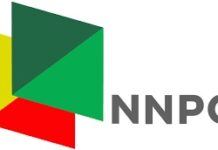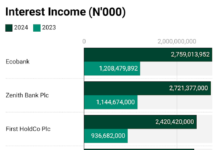UGO AMADI
Stakeholder in the oil and gas sector have reiterated that to reduce production costs and boost profitability in oil and gas production the deployment of digital technology is highly imperative
The stakeholders who spoke at the session of the ongoing 2021 Nigeria International Petroleum Summit (NIPS) in Abuja with the session theme as ‘Drive Data to barrel- Building fully connected ,intelligent oil and gas ‘ also had the conference summit theme as : “From Crisis to Opportunities: New Approach to the Future of Hydrocarbons”.
The stakeholders affirmed that from streamlining engineering and design process with a data-centric platform to enabling a real-time 360o view of operations across the value chain, to enabling predictive operations and maintenance full digitalization will help reduce risks of capital project delays and cost overruns and improve production at a lower cost.
Speaking at the opening remarks for the session, Mr. Bitrus Nabasu, Permanent Secretary, Ministry of Petroleum Resources stated that the deployment of digital technology is key to reducing the Unit Operating Cost (UOC) of producing crude oil in Nigeria to $10 per barrel by December 2021.
According to Nabasu ” As the demand for energy increases at an astronomical rate, the quest for deployment of innovation and technology to keep pace with the demand increases.
“The oil and gas industry utilises these innovations and trends to increase the efficiency of operations and reduce costs.
“Most oil and gas companies overrun in cost and time. The use of digital technology can help companies manage over-spending and operations, meeting deadlines and ultimately increasing overall productivity.”
According to him, with the uncertainty triggered by the COVID-19 pandemic, the current objective of the oil and gas industry is maintaining sustainable profitability.
He said some of the digital technologies and innovations that had helped in this regard include Artificial Intelligence, Big Data and Analytics, Robotics and Automation, 3D Modelling, Cloud Computing, Blockchain technology, amongst others.
“These technologies do not come cheap. No doubt, there are huge costs involved in the deployment of innovation, but those companies that make it a priority reap the benefits.
“According to a research by McKinsey, effective use of digital technologies in the oil and gas sector could lead to reducing capital expenditures by up to 20 per cent and operating costs in the upstream by three to five per cent.
“Therefore, digital technology should be placed at the core of the business strategy in the industry, ” Nabasu added.
Also in her presentation the Chief Innovation Officer, Research, Technology and Innovation Division, Nigerian National Petroleum Corporation (NNPC), Mrs Betty Ugona, said digitalisation was one of the NNPC strategies to curb high cost of operations.
Ugona said the division was set up to provide research support to the NNPC following the impact of the COVID-19 pandemic on crude oil production and how best to overcome the challenges.
On his part, Mr Michael Zhaung, Managing Director, Hauwei Nigeria, said Hauwei was committed to digitalisation of the oil and gas industry in Nigeria.
He said Hauwei would continue to partner with oil and gas companies in Nigeria to provide real time monitoring of oil and gas infrastructure in order to reduce vandalism and oil theft.

























